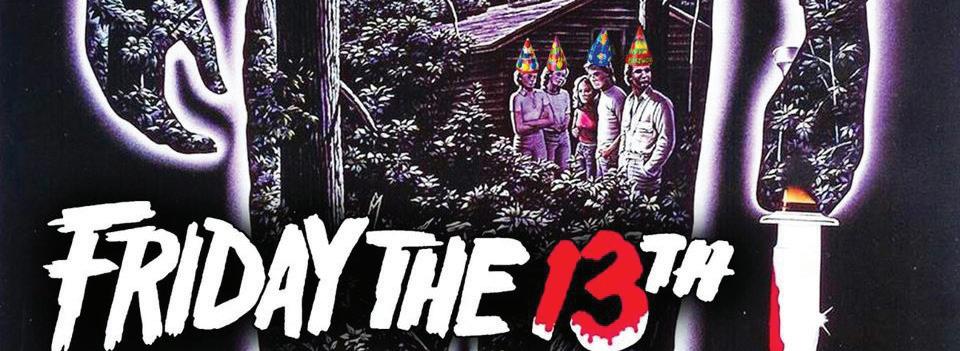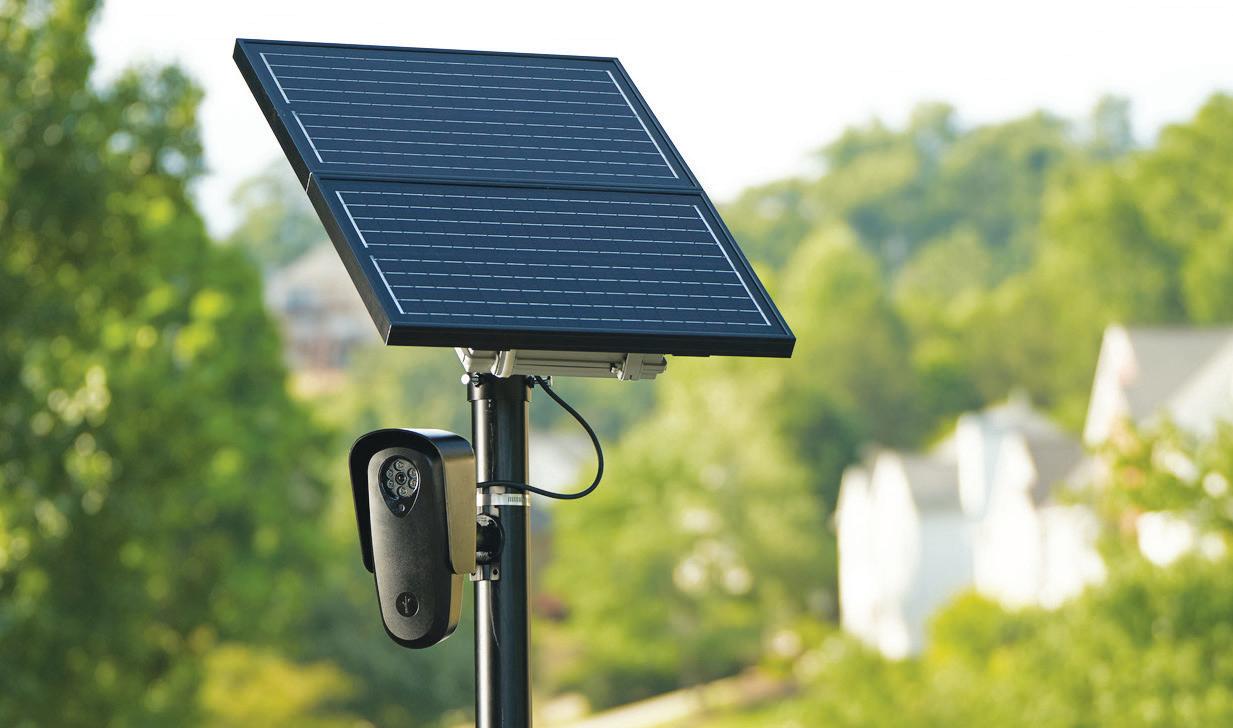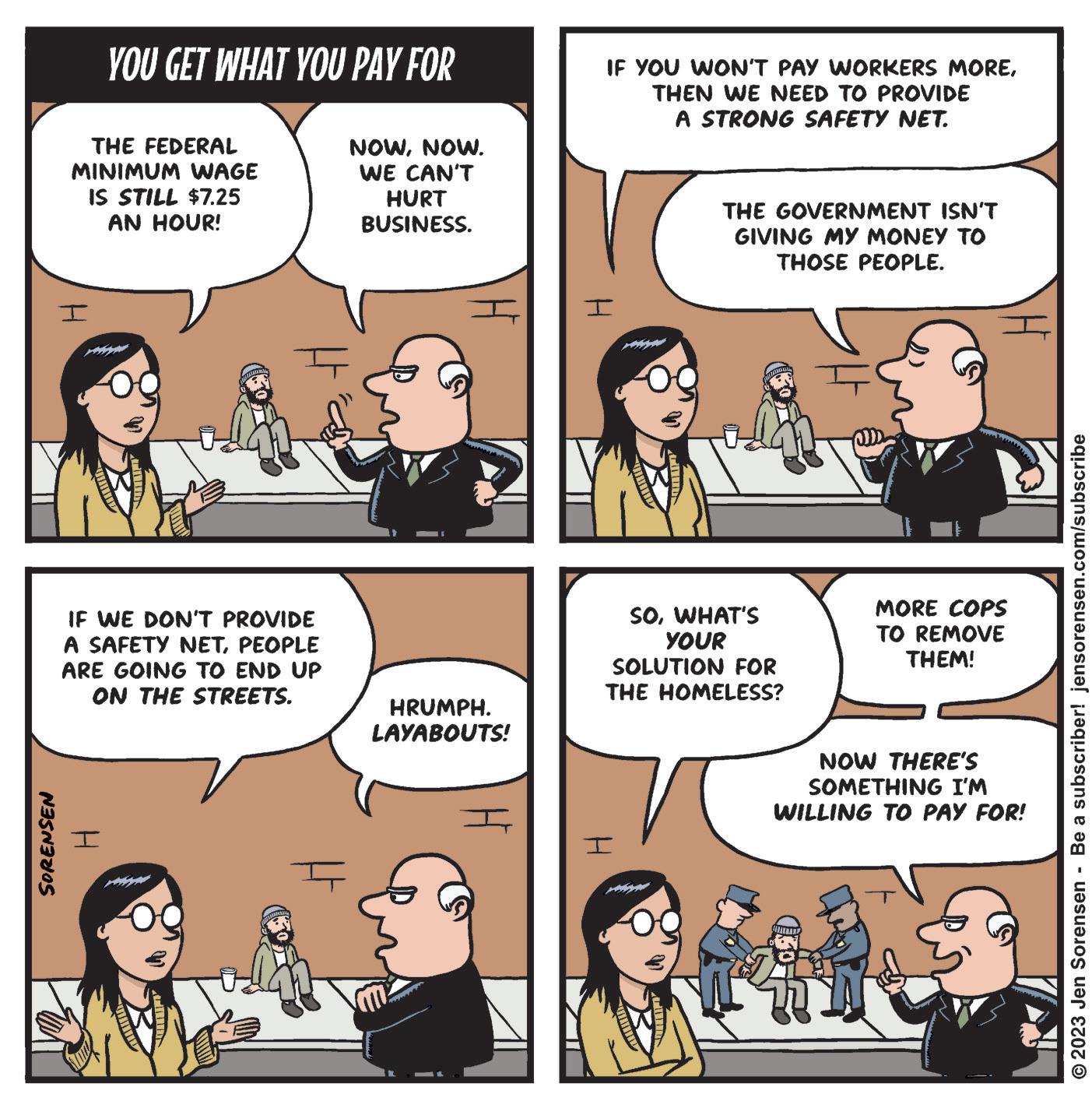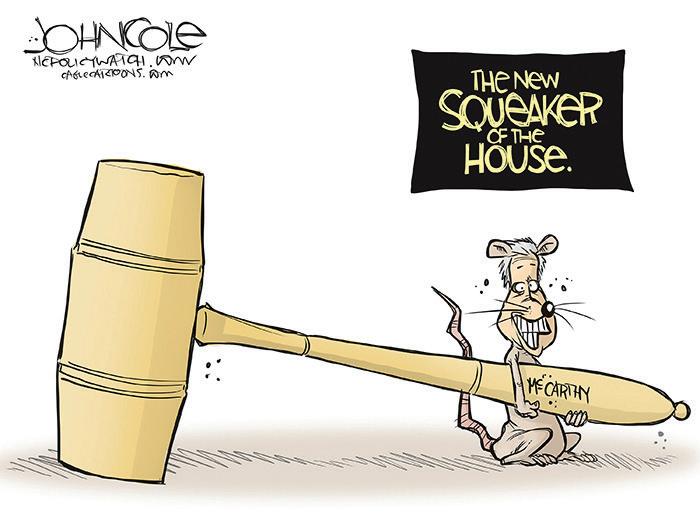





here’s a word for what we’re feeling here at TCB after the first week of CItyBeat reporting has landed in the books: Stoked.

We built this beat in anticipation of the news desert that’s forming in the Triad, on the assumption that people here want more news about their cities and not less. After one week the numbers bear out: The piece on Greensboro’s Social District dominated the traffic on our site as soon as it dropped; Gale Melcher’s reporting on Winston-Salem’s new license-plate cameras blew up once it got scraped by digital news aggregators.
It’s working. And there’s so much more to come.
Papers like ours, once a supplemental source of news, are being tasked with heavier lifting as out-oftown interests decimate the ranks of full-time reporters covering the Triad. We lost another one this week as longtime Winston-Salem Journal reporter announced he would be leaving the daily to work for statewide news outlet the Assembly. The establishment of the CityBeat was not so much a choice as a duty. Because if we don’t do it, who else will?


I recognized the relief in our man-
Taging editor’s face when she realized that our little experiment is working, that our battle against the river of local news — always flowing, dense with important stories — had turned a corner.
I once ran a newsroom that had as many as three full-time reporters and a couple of photographers on staff. At the time it was the smallest operation in the Triad, so we battled for scoops while the Greensboro Police Department was trying to wind down a scandal and the city of Winston-Salem was still deciding what to do about Darryl Hunt.

There’s a feeling of power that comes with sending out a platoon of reporters to chase leads or to flood the zone — not, as is so often misattributed to the press, the power to shape the news but to get to the truth of the matter, whatever that day’s matter might be. I’ve been an editor long enough to know that the more reporting we do, the closer to the truth we get.
It’s a tough time for local news these days, when three full-time reporters is considered a large staff. We no longer battle for scoops but instead rely on other newsrooms to handle the stories we don’t have the resources to cover, each of us staking out our own spot in this river of news. It seems there are fewer of us out here every year. And so we’re stoked to add another one to the ranks.
We built this beat in anticipation of the news desert that’s forming in the Triad.




Yoga on the Mat @ Trotter Recreation Center (GSO) 11:30 a.m.



 by MICHAELA RATLIFF
by MICHAELA RATLIFF































Friday the 13th @ a/perture cinema (W-S) 4 p.m., 10:30 p.m.





















with cash prizes, live music, live tattooing and more. Purchase tickets at greensborocoliseum. com
Everybody Says Don’t: John Carden Sings Broadway @ UNCSA (W-S) 7:30 p.m.
Greensboro Parks and Recreation is hosting a series of yoga classes designed to improve your range of motion, balance and overall health. No registration is required. Visit the event page on Facebook for a schedule of classes.

A/perture cinema celebrates its 13th birthday with a screening of Friday the 13th on Friday the 13th! Despite warnings from residents of Crystal Lake, a group of skeptical counselors set up camp where they find themselves becoming prey to killer Jason Vorhees. Purchase tickets at aperturecinema. com
UNCSA alumnus John Carden, accompanied by School of Music pianist Nancy Johnston, will perform a program of works from musical theater and Broadway. Purchase tickets at uncsa.edu


















Get the full events calendar by signing up for the Weekender, straight to your inbox every Thursday. pico.link/triadcitybeat
Full Throttle Custom Bike Show @ Greensboro Coliseum Complex (GSO) 10 a.m.
Carolinas’ Biker Lawyers and Full Throttle Magazine are excited to announce an indoor custom bike show experience. Enjoy a 17 class bike show
Cosmic Winter Show @ Etc.gso (GSO) 7 p.m.























The Cosmic Winter Show features performances from four acts specializing in experimental and spirituality-inspired music. Learn more at the event page on Facebook.

On Jan. 3, Winston-Salem City Council unanimously approved an agreement with Flock Safety, a company known for its surveillance technology.
The agreement approved Flock Safety’s request to allow the installation of 25 automated license-plate readers in intersections across all eight wards of the city as part of a pilot program in partnership with the Winston-Salem Police Department and WSPD’s body-camera provider AXON.
According to city council documents, the approval was for 24 cameras but an email from Assistant City Manager Patrice Toney confirmed that there would be 25 with each ward receiving about three cameras.
This trial run will be free to the city through the end of the yearlong pilot period; after that, each camera will cost the city $2,500 per year. Placed within the WSPD’s ShotSpotter coverage area, cameras will be connected to the Real Time Crime Center through the Flock Safety app and cloud-based Fusus. Cameras will be installed at intersections on 12-foot metal poles and reach a total height of 13 feet.
The Public Works Committee — made up of council members Jeff MacIntosh, Barbara Hanes Burke, John Larson and Annette Scippio — unanimously recommended the program’s approval during a committee meeting on Dec. 13 after the proposal was brought up in a March 2022 public safety committee meeting.
According to a map presented to council, four cameras will be located in northern Winston-Salem past Smith Reynolds Airport, with eight slated for the southern areas of the city past Clemmonsville Road. Most of the readers are planned to be installed in the center of the city.
According to WSPD’s Public Information Officer, Kira Boyd, an installation date for the cameras has not yet been set.
uring WSPD’s presentation by Assistant Chief William Penn, Jr. in March 2022, Penn talked about how and why the readers would be used.
“It’s going to capture license-plate numbers presented to give officers the ability to compare that with suspicious vehicles and vehicles that have been suspected of crimes throughout the city,” Penn said.
These motion-activated cameras do not utilize facial-recognition technology and will capture only the make, model, color and license plate of a vehicle, plus features like roof racks and bumper stickers. Sensors can also detect how many times a vehicle has passed by a reader, as well as identify sounds such as gunshots and screeching tires in audio recordings. WSPD will be notified in real time if the license plate of a stolen or wanted vehicle is detected by the cameras.
During the public works committee meeting on Dec. 13, council member and South Ward representative John Larson asked, “How do we judge the success of this program?”
Assistant City Manager Toney replied, “At the end of the pilot period we’ll have some data on [its] use and how effective [it is].” More cameras may be added after the pilot period, Toney continued. “If it’s something that proves to be effective for the city, then the police department will come back with a request to fund the service going forward.”
According to their website, Flock Safety currently serves more than 2,000 cities in 42 states with operational license-plate readers in nearby cities such as Raleigh and Greensboro. The latter already has 25 cameras installed throughout the city.
In an email to TCB, Greensboro Police Lt. RB Todd said that the technology has yielded positive results.

“Without giving details to any specific case (because they’re all active investigations), I can certainly confirm the technology has been useful in investigating and thwarting violent crime, to include robbery sprees, shootings, and aggravated assaults,” Todd wrote. “We’ve had strong success in utilizing the LPRs to investigate traffic collisions and fatalities, as well. Also, non-criminal investigations have started to lean on the technology, such as helping to find the subjects of Missing Persons reports or Silver Alerts.”
Areport released by the ACLU in March 2022 about Flock Safety sounded the alarm on the company’s capacity to provide surveillance on a massive scale. From the report: “By pulling all the data recorded by its customers — including its police customers — into its own centralized servers, Flock not only creates an enormously powerful private-public machine sweeping up data on Americans’ activities, but puts itself at that machine’s center.”
According to a November 2022 webinar by the city, the cameras cannot capture any personally identifiable information or use facial recognition technology. However, because license plates are tied to car registrations, that assertion seems a bit dubious. In an interview from December 2022 with TCB, former GPD crime analyst Davin Hall said that when law enforcement departments claim that technology can’t be used to specifically identify individuals, it’s not always true.
According to an Associated Press article from September 2022, when using mobile tracking technology, it was revealed that police could use the data obtained to determine personal information.
“The city’s standpoint at the time was that because the mobile ID number did not contain any personally identifiable information, it was fair game as a search,” Hall said about the mobile technology. “I think it’s kind of a ridiculous argument because if there wasn’t any personally identifiable information, we wouldn’t want it.”
When questioned in an email about cameras’ ability to link a license plate to an individual, WSPD’s Public Information Officer Boyd referred TCB to the city’s website for FAQ about the technology.
“There is no personally identifiable information contained in an ALPR record and the operator can only determine the registered owner of a vehicle by querying a separate, secure state government database of vehicle license plate records, which is restricted, controlled and audited,” the website states.
WSPD says that the footage will be owned by the police department and the city, never to be sold or shared by Flock Safety. North Carolina’s statute regarding automated license-plate readers states that systems are prohibited from retaining

● Bethabara Park Blvd @ Reynolda Rd (WB)
● Hanes Mill Rd @ Germanton Rd (EB)
● Brownsboro Rd @ Cherry St (EB)
● Northampton Dr @ Oak Ridge (NB)
● Jonestown Rd @ Kester Mill Rd (NB)
● Academy St @ Peters Creek Pkwy (WB)
● Westbrook Plaza Dr @ Stratford Rd (EB)
● Reynolds Park Rd @ Waughtown Rd (SB)
● Brewer Rd @ Peters Creek Pkwy (WB)
● Clemmonsville Rd @ S Main St (WB)
● Clemmonsville Rd @ Sprague St (SB)
● S Main St @ W Rhyne Ave (SB)
● Martin Luther King Dr @ Cleveland (EB)
● Patterson Ave @ 30th St (NB)
● 25th St @ Bowen Blvd (WB)
● Stratford Rd @ Buena Vista Rd (NB)
● Northwest Blvd @ Thurmond St (WB)
● N Cleveland Ave @ 14th St (NB)
● Country Club Rd @ Knollwood St (WB)
● 5th St @ Broad St (EB)
● Cloverdale Ave @ Park Grove Ave
● Broad St @ Holly Ave (SB)
● Old Greensboro Rd @ Waterworks Rd (SB)
● Spring Garden @ Josephine Boyd (WB)
● Spring Garden @ Chapman St (EB)
● MLK Dr @ Randolph Ave (NB)
● MLK Dr @ Randolph Ave (SB)
● E Market St @ Shaw St (EB)
● E Market @ Shaw (WB)
● E Market @ S Raleigh St (EB)
● English St @ E Market (NB)
● Veasley St @ Gate City Blvd (NB)
● Isler St @ Cedar Fork Dr (EB)
● English St @ Market St (SB)
● Merritt Dr. @ Halcyon St. (EB)
● Merritt Dr @ Jane St (SB)
● MLK Jr Dr @ E Bragg St (EB)
● MLK Jr Dr @ E Bragg (WB)
● Pisgah Church & N Church St (WB)
● Pisgah Church & Elm St (EB)
● Phillips Ave & N English St (EB)
● Phillips Ave & Elwell Ave (WB)
● Brompton @ Montrose (SB)
● W Market St & Montrose Dr (NB)
● Stanley Rd & Lenada Rd (WB)
● Stanley Rd & Wendover Ave (SB)
● Merritt Dr. @ Spring Garden St. (WB)
● Merritt Dr. @ Spring Garden St. (SB)
data beyond 90 days, and that any state or local law enforcement agency using an automated license-plate reader system must adopt a written policy governing its use before the system is operational. TCB has requested a copy of the policy.
In the ACLU report, Flock Safety CEO Garrett Langley said that data collected by the cameras will only be retained for 30 days and then deleted. The City of Winston-Salem’s official website explains how the data will be destroyed.
“All images are captured and stored in AWS; they are tagged with a ‘time to live’ (TTL) which triggers deletion of the image. The image is fully removed from the cloud at that time and is fully unrecoverable by FLOCK, and the law enforcement agency.”
Council member Annette Scippio, representative of the East Ward, said she’s excited that the program is free but has concerns about increasing surveillance in the city.
“It certainly seems like Big Brother is watching you,” she said during the public safety meeting in March 2022. “I know that would be a concern, but my big question is the retention period of the data for only 30 days. Does that mean that footage cannot be used in court proceedings later on?”
Assistant Chief Penn responded affirmatively: “If the data isn’t involved with a missing person or crime. So (if you’re just) going down the street and that data’s captured, after 30 days that data is gone.”
Council members previously moved to delay their vote on the agreement during a public works committee meeting on Sept. 13, citing concerns over insufficient efforts to collect public input on this matter.

Mayor Pro Tem Denise D. Adams voiced her worries during this meeting.
“What does the community feel about this?” she asked. “Particularly my urban, inner-city communities… my Black and Brown communities… Did we ask them? Did we tell them we are getting ready to do this?”
Opposition of these cameras has emerged in other communities around the country. In September 2022 Ypsilanti Township officials in Michigan delayed installation of Flock Safety cameras due to protest from residents. Apprehensions included the possibility of intimate partner stalking within the police department as well as uneasiness that police could use license-plate readers to track women seeking abortions from out of state or if Michigan law changes.
A 2016 investigation by the Associated Press documented incidents of abuse of confidential databases by police officers, reporting: “Police officers across the country misuse confidential law enforcement databases to get information on romantic partners, business associates, neighbors, journalists and others for reasons that have nothing to do with daily police work.”
The report mentioned a case in which a marshal in Mancos, Colorado asked his coworkers to run license plate checks on every white pickup truck they saw simply because his girlfriend was seeing a man who drove that model vehicle.
Katharina DiMov was shopping at Aldi’s near Brewer Road and Peters Creek Parkway when she learned about a camera coming to the intersection.
“That’s my main question: How else can it and will it be used if they see fit to use it in a different way?” DiMov said.
According to the police and other city officials, the cameras are used to compare license plates to find stolen cars or cars driven by people suspected of being involved in criminal activities. They can also use them to search for a registered owner’s name and find their license plate.
However, paired with human error, license-plate cameras used by police could contribute to mistaken-identity arrests. And they have: right down the road in Charlotte. In June 2021 Charlotte-Mecklenburg police officers handcuffed teacher Jasmine Horne at gunpoint due to a slip-up involving license-plate readers, mistaking her for a suspect in a stabbing. When the victim gave police the name of the
person who stabbed them, police misspelled it when they entered it into the system. Police then followed the car with the license plate linked to that name, leading them to Horne’s home, where they arrested her on the spot. The actual suspect, Jaselyn Horne, was taken into custody later on. CMPD Chief Johnny Jennings decided not to discipline any of the officers involved despite the distress that Jasmine Horne endured as a result of their mistake, according to news reports
At the corner of Westbrook Plaza Drive and Stratford Road, Antonio Aguilar shared his opinions about the cameras while perusing items in Walgreens.
“If it might help out a case, then sure I’d say go for it,” he said. “I wouldn’t be too against it, but I wouldn’t be shouting from the rooftops saying, ‘Hey, we should have license-plate readers!’”
In a previous article, TCB reported that after 30 days, footage captured from the surveillance cameras will be permanently deleted if not being used in an active investigation. But that means taking police at their word, Aguilar said.
“They could say one thing but then really just be doing something else,” he said. “Otherwise I’d say I’d be okay with it…”
While taking a walk along Broad Street, Jerry Davis also had questions about how the new cameras would be used.
“What are they using it for?” he asked. “Are they using them for…speeding, running stop signs?”
According to a 2021 Vice investigation, Flock Safety cameras have the capability to be used to scan license plates for immigration purposes. In the article, Flock CEO Garrett Langley told Motherboard, “Yes, if it was legal in a state, we would not be in a position to stop them,” he said. “We give our customers the tools to decide and let them go from there,” Langley elaborated.
And broad use of the technology concerns Davis.
“I can’t say that I’m really a fan of that; it’s an invasion of privacy,” he said.
This piece is part of our new CityBeat that covers Greensboro and Winston-Salem city council business. All CityBeat reporting content is made possible by a grant from the NC Local News Lab Fund, available to republish for free by any news outlet who cares to use it.
To learn how, visit triad-city-beat.com/republish.
 jensorensen.com
jensorensen.com


Before he made the announcement on Jan. 4, Rep. Jon Hardister had hinted for weeks that he would take a shot at the North Carolina Commissioner of Labor post in 2024 and decline to run for re-election in NC House District 59, where he has served since 2013 We were there in those heady days when Hardister won his first election in 2012 — heck, we were there when he logged his only electoral loss, to Rep. Pricey Harrison in 2010, the same year his GOP brethren took a majority in the State House in 100 years. We’ve watched him rise quickly through the Republican ranks, becoming House whip at the frightfully young age of 34, all the while taking care to win his elections — even when the district was not always drawn in his favor. We’re not always kind to Republicans in this space — and we have disagreed with plenty of policy positions put forth by NC Republicans and whipped to vote by Hardister. But for every Parents Bill of Rights, there were a dozen bills that allocated funds and favors to his district and its neighbors. We saw him find common ground with Triad Democrats again and again, then use his position within the party in power to make things happen.
Hardister can also take some credit for reforming — to a degree — our state’s antiquated regula-
tions on alcohol. As chair of the Alcoholic Beverage Commission, he was an early advocate for the burgeoning brewing and distilling sectors in the state. In large part, he’s the reason why distilleries can sell more bottles of their own product and why you can get a mimosa at Sunday brunch before noon. Are these accomplishments enough for a House rep — albeit a popular one — to win a statewide election?
He’ll already have at least one primary challenger: Rep. Ben Moss, of District 52 in Moore County, who announced his intent to run for labor commissioner in December 2022. Any number of Republicans could throw a hat in the ring in the next two years, and then there will certainly be a Democrat to run against in the general election.
Perhaps it would seem safer, politically, for Hardister to maintain his position in District 59 — which, as it’s currently drawn, leans slightly to the left. In last year’s election, Hardister got 56.3 percent of the vote, but that’s not so great considering his adversary, Sherrie Young, did almost no campaigning and was arrested on a gun charge shortly before the election and still got almost half.
Maybe he smells something in the air. But two years is an eternity in politics. Who knows which way the wind will be blowing by then?
My pot used to runneth over. Until a few years ago, I used to try to make baked spaghetti in a small, 2-quart-sized pot. I would cram the noodles, the sauce, the meat all in there, hoping that there would be enough space for me to stir everything together. There wasn’t. Thus, I never made my favorite winter dish until a kind stranger gifted me their shiny, Emeril Lagasse, 6-quart, stainless-steel saucepot for free. And all I had to do was ask.
For the last three years I’ve been a part of a group called the BuyNothing Project, an international organization that aims to reduce waste and consumerism by connecting people with their neighbors. It’s a bit like Craigslist but without money. People ask and give things completely for free, no strings attached.
“It aligns perfectly with my values of sustainability,” says Drea Douglass, who has been part of the Greensboro South BuyNothing group for the last two years. “Not throwing things away and also trying to reduce my consumerism. I feel like we live in an exploding volcano of resources in this country and they’re not being distributed efficiently. I feel like we could share our stuff instead of throwing things away.”
The way it works is simple, really. People log onto Facebook or the app, find their group based on where they live — Greensboro currently has three groups: South, Northwest and Northeast — and they can start posting. There’s only really three main rules: Give freely, show your humanity, keep it legal.
“I think of the group in two parts,” says Brittney Hryczaniuk, an admin for the Greensboro South group. “There’s a building-community part and then there’s the anti-capitalist, radical experiment part that says, We can do this.”
Since I’ve joined, I’ve given countless items that I would have either thrown away or taken to Goodwill, things like an old cat tree, hair conditioner, unopened snacks, balloons and even small furniture. In return, I’ve been gifted watercolor paints, flowerpots, clothes and sleeping bags. And it’s not like I’ve been keeping track of how much I’ve gifted versus received. That’s not really the point.
“There’s no quid pro quo,” Hryczaniuk says. “It’s not like if you give five items, you get five items. You can literally join and never gift anything.”
In a hyperconsumerist culture in which things can arrive at people’s doorstep in a matter of hours or days, the BuyNothing group aims to get people to re-evaluate their consumption and connect back with their community. That’s why posts about where people can find items in stores or notifications about sales are prohibited.
“We’re not taking our resources and giving it to Amazon,” Hryczaniuk says. “In this sphere, we’re trying to keep it simple. We’re keeping it focused on if someone else can provide it for you.”
Oftentimes when someone posts an item, many people comment. And then the original poster will decide who receives the item either based on their responses or through a random number generator. The feeling of not being picked can be frustrating at times, but Hryczaniuk says that’s just another product of capitalism.
“That’s the scarcity mindset that’s ingrained in capitalism,” she says. “It’s about taking a step back and thinking, That was just a gift, and telling yourself, I wouldn’t have had that opportunity to receive it if I hadn’t been a part of the group. I didn’t lose anything, another gift will come up.”
And they often do.
One of Douglass’ favorite things she’s received through the group is a citrus juicer.

“I always wanted one and I was looking in the group when someone posted one,” she says. “That’s the real joy of it. Sometimes you need something and someone posts it and it’s like it’s meant to be.”
When someone gifts an item, they usually put it outside of their home and send the receiver a direct message with their address. It’s something I’ve personally done dozens of times. And while that may seem icky to some, Hryczaniuk says they’ve never had an issue with safety since the group started.
“It’s built on trust,” she says. “That can be hard sometimes. It does take a second. You have to put your guard down.”
For Douglass, it’s been a great way to get to know people in her community.
“I like that it emphasizes your close neighbors,” she says. “It’s creating a network of people who you know are close by.”
In an age when fewer people know their direct neighbors, Douglass says the connection is refreshing.
“I think it’s a huge miss,” she says. “It contributes to your mental health, that you know [your neighbors] and can trust them. It’s crucial to the fabric of society.”
Hryczaniuk, who joined the Greensboro BuyNothing group in 2015 and has been an admin since 2017, says she’s seen the group grow exponentially in the last five years. When she first came, there were only a few hundred people, but soon the one group got so big that they had to sprout into the three groups that exist today. Now, the Northwest group that she manages is quickly approaching 900 members.
“Things just felt like they got harder, whether that’s the pandemic or losing connections with people, losing jobs, but also with inflation and everything that’s happened in the country and outside the country,” Hryczaniuk says. “So this seems like a very easy thing to be a part of and get a lot more in return.”
It is easy; there are only three kinds of posts in the BuyNothing groups: give, ask and gratitude.
“Here it’s just calm, quiet, simple,” she says.
Learn more about the BuyNothing Project at buynothingproject.org. To join a local group, search for BuyNothing in Facebook or on the app and join one of the three Greensboro groups. There is also a large just Greensboro group but Hryczaniuk says that one is not official.
t’s been a rough couple of months for Brian Ricciardi.
In August 2022 the restaurateur closed his two vegan restaurants, Dom’s and Radici, back to back. Originally having made a name for himself through his Italian spot Mozzarella Fellas, Ricciardi was facing a staffing crisis much like many other businesses in the area.
“A lot of [closing] had to do with staffing, people putting their shit onto you,” he says. “It just seems like the balance was off. This demanding, everyone wants this salary and everyone wants this, but the standard is lower. It just is very one-sided. I just kind of got sick of dealing with that bullshit honestly.”
To him, the issue is a lack of respect for the food industry.
“They say it’s the industry’s fault because we don’t pay people enough, but then [consumers are] not happy because this is a $20 price tag; it’s like we can’t win,” he says. “A lot of people coming into this industry don’t respect it and treat it like a stepping stone, just an interim paycheck that they really don’t care about. And also for consumers who just want, want, want and don’t understand what we’re up against, trying to make this all happen.”
So he decided to close his doors. He asked his staff if they wanted to ride things out into September, but said that for most of them, a two-week notice was fine. In a previous article, a past employee told TCB that they were only given a few days’ notice about the closures.
A few months went by, and Ricciardi decided he wasn’t ready to give up just yet.
“I was sitting at home, and I licked my wounds, regained my energy,” Ricciardi says.
In October 2022 he reopened Dom’s using a take-out only model. He would offer a limited menu and only take orders online. So far, it’s been working, but as the sole employee, the work has been getting to him.
“It’s literally just me, I’m cooking,” he says. “I can’t be in the dining room taking orders so I keep the door locked a majority of the time. I get an order, I make it and I put the order right outside the door for pick up.”
December was a good month for business, Riccardi says. And he wants to expand the menu, but says he’s hesitant about hiring someone again.
“In order to get this place a little busier, I need to expand the menu, and to expand the menu, I need another set of hands,” he says. “But I’m standing firm that it has to be the right person; I’m not going to just hire a warm body. I’m not dealing with that again; I don’t need anybody. If I go back to that, I will close again and I will stay closed and I will wash my hands of this industry.”
When Ricciardi closed Mozzarella Fellas in 2021 and rebranded it as Dom’s, many in the community were surprised and critical. How could a vegan restaurant survive in the Triad? But then, he opened another, more paired-down business on South Elm Street in Greensboro. A small plate-focused venture that was vegetable-forward, a fine-dining experience just for vegans. It was ambitious, considering that there wasn’t a brick-and-mortar
vegan restaurant besides Dom’s anywhere else in the Triad.
Ricciardi, who continues to pay rent on both locations, is operating only Dom’s for now and isn’t sure what the future holds for Radici. In recent months the downtown storefront has been taken up by a rotating list of activists and grassroots artists. But as always, Ricciardi is unwilling to compromise on his ideals to move forward.

“I don’t do things just to be successful,” he says. “The point to me is doing something I’m passionate about and hoping it’s received well and it’s something others are also passionate about. I know right now if I go in a certain direction, I can make a successful restaurant…. That’s not what I’m setting out to do, I’m trying to do something different.”
Hopefully, those who are interested in plant-based meals will continue to support him, he says.
“Just having that place where you can go and eat and you don’t have to modify, and you don’t have to worry about what’s being mixed with your food on the grill or in the fryer,” he says. “I think a lot of people are thrilled.”
But it’s going to take more than a handful of fans to keep this going.
“I’m giving 90 percent of myself to this,” he says. “I’m just continuing based on the support. The people have always decided and will continue to decide my fate.”
To order from Dom’s, place an order for pickup on the website at domsws. com. Delivery is also available. The restaurant is open for takeout orders everyday from 11 a.m.-7 p.m.










